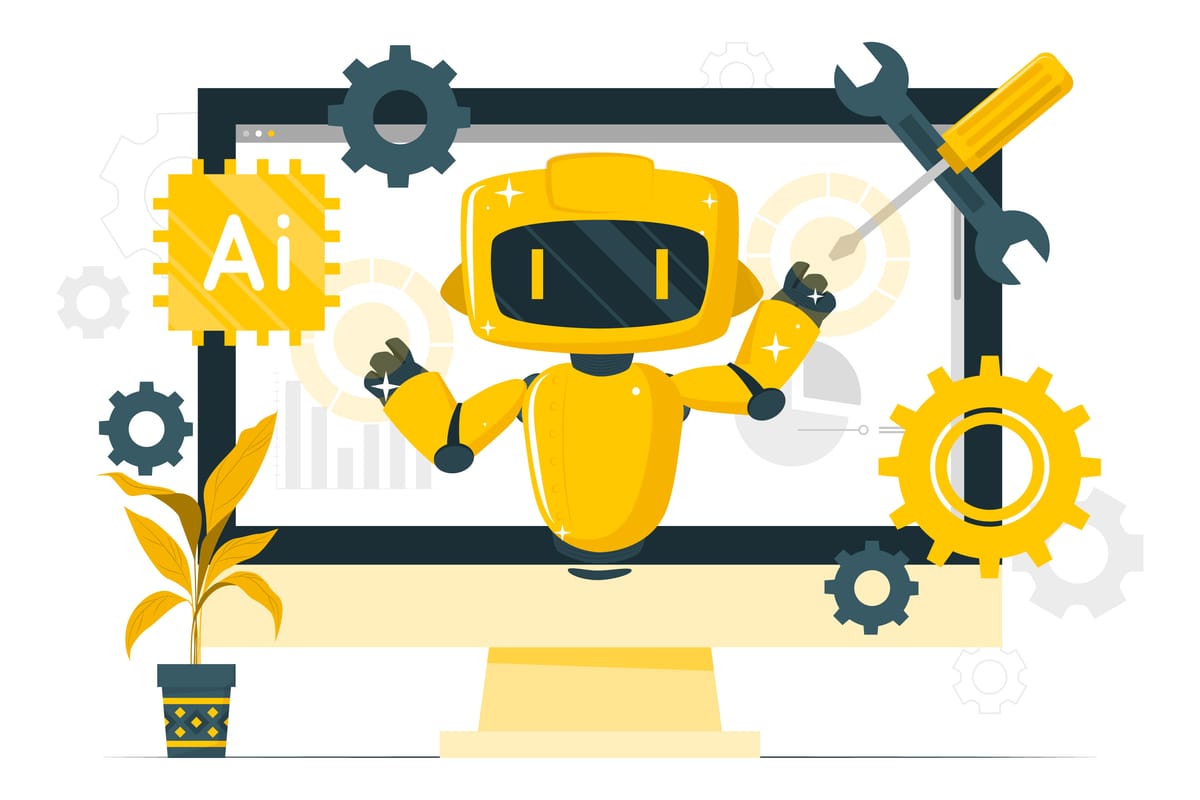Fullstack development in the age of generative AI

As fullstack development continues to evolve, generative AI is becoming increasingly essential for boosting developer productivity. AI-powered tools and extensions are transforming the way developers write and debug code. This analysis, based on early 2025 trends and developer insights, explores the most impactful AI-driven tools and VS Code extensions available today. It highlights their key features and benefits, with a particular focus on solutions that cater to both frontend and backend development, ensuring a well-rounded approach to modern software creation.
AI Tools for Coding and Debugging
AI tools have become indispensable for fullstack developers, offering features that streamline the development process. Based on recent analyses, the following tools stand out for their utility in coding and debugging:
- GitHub Copilot: Developed by GitHub and OpenAI, this tool is trained on billions of lines of code, providing inline suggestions and chat functionality. It supports multiple IDEs, including VS Code, and is particularly effective for real-time code completion and error fixing, and even generates unit tests with commands like /tests. For fullstack developers, it’s a versatile companion, crafting React components or Express.js endpoints with equal finesse, cutting task completion time by up to 55%. Its integration with team workflows via slash commands makes it ideal for collaborative fullstack projects.
- Tabnine: Known for its focus on privacy and security, Tabnine offers AI-powered code completions and unit test generation. It’s ideal for fullstack projects, generating frontend JavaScript snippets or backend Python logic while learning from your team’s codebase. Its unit test generation feature ensures robust testing across stacks. It supports over 25 programming languages, making it versatile for fullstack developers working across frontend (e.g., JavaScript, HTML) and backend (e.g., Python, Java) stacks. Its team learning feature allows customization, enhancing productivity in enterprise settings.
- Cursor: A next-generation AI code editor built on VS Code, Cursor takes productivity to new heights with features like natural language editing and multi-line code predictions. As an extension and standalone editor, Cursor integrates Claude models (e.g., 3.5 Sonnet) to offer advanced features like multi-file editing and project-wide context awareness via @workspace. Fullstack developers benefit from its ability to generate entire React components or Node.js APIs from simple prompts, while its Composer mode can scaffold full applications. Its natural language interface lets you say, “Build a login page with API calls,” and watch it happen.
- Claude (by Anthropic): Developed by Anthropic, Claude — particularly models like Claude 3.5 Sonnet and 3.7 Sonnet — is a powerhouse for coding and problem-solving. Available through platforms like Cursor or standalone interfaces, it excels at generating boilerplate code, debugging complex logic, and even planning fullstack projects. Its strength lies in understanding nuanced requirements, making it perfect for crafting cohesive frontend-backend integrations, such as a React UI paired with a Django API. Its ability to handle complex tasks, such as optimizing a database query or refactoring a frontend component, makes it invaluable.
- Amazon CodeWhisperer: Powered by Amazon Bedrock, this tool provides real-time code generation within IDEs like VS Code and IntelliJ, with additional features like vulnerability scanning and test-writing assistance. It’s comprehensive for modern development, ensuring security and efficiency, which is crucial for fullstack applications.
- ChatGPT (with GPT-4): While primarily a conversational AI, it excels in debugging by explaining errors and suggesting fixes. Its multimodal capabilities, especially with GPT-4o released in May 2024 (AI Code Tools 2025 Guide), make it a valuable tool for fullstack developers seeking natural language-based code assistance.
- Qodo: Specializing in fullstack development, Qodo understands complex project contexts and generates entire features or components based on natural language descriptions. It offers a free VS Code extension with features like test generation and code review, making it accessible for individual developers (10 Best AI Coding Tools 2025).
These tools enhance productivity by automating repetitive tasks, reducing debugging time, and ensuring code quality. For instance, a 2025 report highlighted that developers using AI tools like GitHub Copilot complete tasks 55% faster (Top AI-Powered VS Code Extensions 2025).
Most Used VS Code Extensions and Their Benefits
VS Code remains the most popular IDE, as per the 2023 Stack Overflow survey (Stack Overflow 2023 Survey), and its marketplace hosts numerous AI-powered extensions. Based on recent analyses and developer usage, the following extensions are among the most used in 2025, particularly for fullstack development:

These extensions offer significant benefits for fullstack developers:
- Time Efficiency: They drastically reduce time spent on writing tests and debugging, with tools like Keploy automating test generation and GitHub Copilot offering 55% faster task completion (Top AI-Powered VS Code Extensions 2025).
- Improved Test Coverage: Extensions like Keploy focus on generating comprehensive tests, covering edge cases and ensuring application reliability, which is critical for fullstack projects spanning web and backend systems.
- Early Bug Detection: Features like real-time error checking in Blackbox AI and security scans in Amazon Q Developer catch issues early, reducing downstream costs.
- Consistency: Maintaining a consistent approach to coding and testing across codebases is facilitated by personalized completions (e.g., Tabnine) and standardized suggestions (e.g., CodeGPT), essential for fullstack workflows.
- Integration with Frameworks: Most tools support popular frameworks like Jest, PyTest, and React, ensuring seamless integration with existing fullstack development environments (11 Best AI Tools for Developers 2025).
Adoption and Impact
The adoption of these AI tools and extensions is surging, with a 2024 Stack Overflow survey (Stack Overflow 2024 AI Tools Survey) revealing that 76% of 65,000 developers use Gen AI coding tools, a 70% increase from 2023. This surge reflects their tangible impact — tools like Cursor and Claude are not just aids but core components of modern fullstack workflows. Developers report that Cursor’s Composer mode, paired with Claude’s reasoning, can cut prototyping time from days to hours, while GitHub Copilot’s chat feature resolves issues faster than traditional forums.
This growth underscores their impact on productivity, with 83% of developers using AI for code writing and 49% for debugging, as per a 2023 survey (Best AI Tools for Developers 2025). The integration with platforms like GitHub, as seen with the Stack Overflow extension for GitHub Copilot (Stack Overflow GitHub Partnership), further enhances workflow efficiency, keeping developers in their flow state.
By leveraging these tools, developers can focus on innovation, ensuring robust and efficient fullstack applications in the generative AI era.

